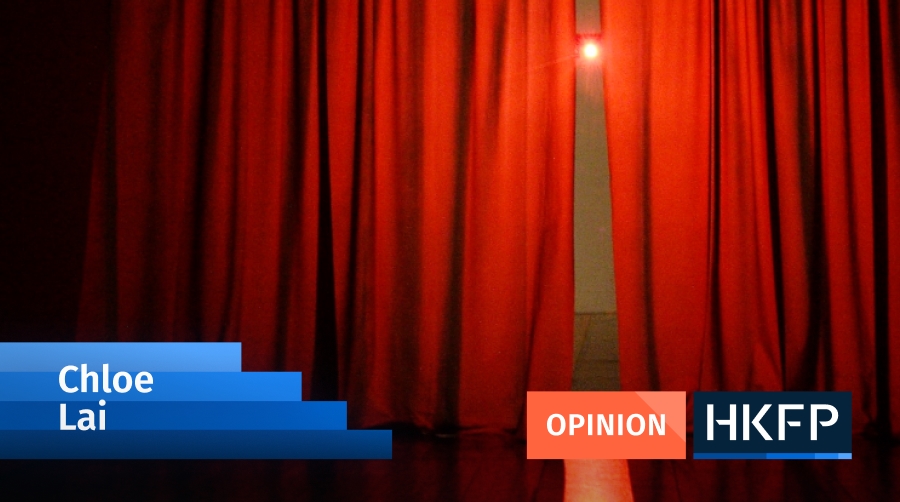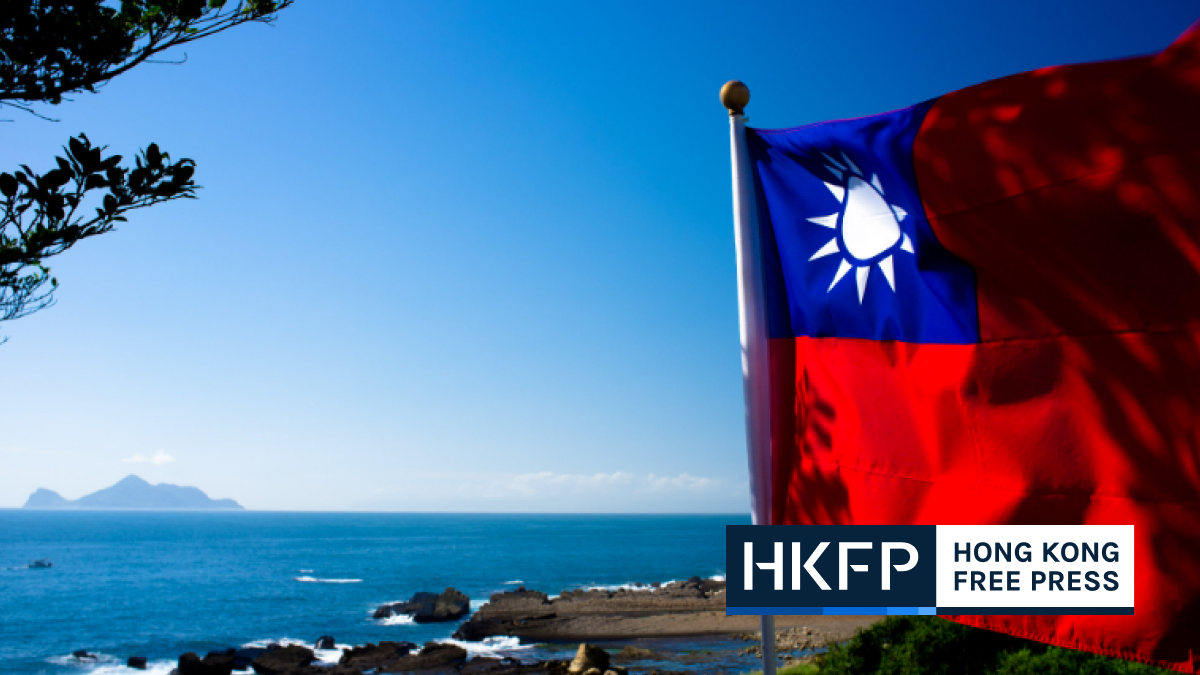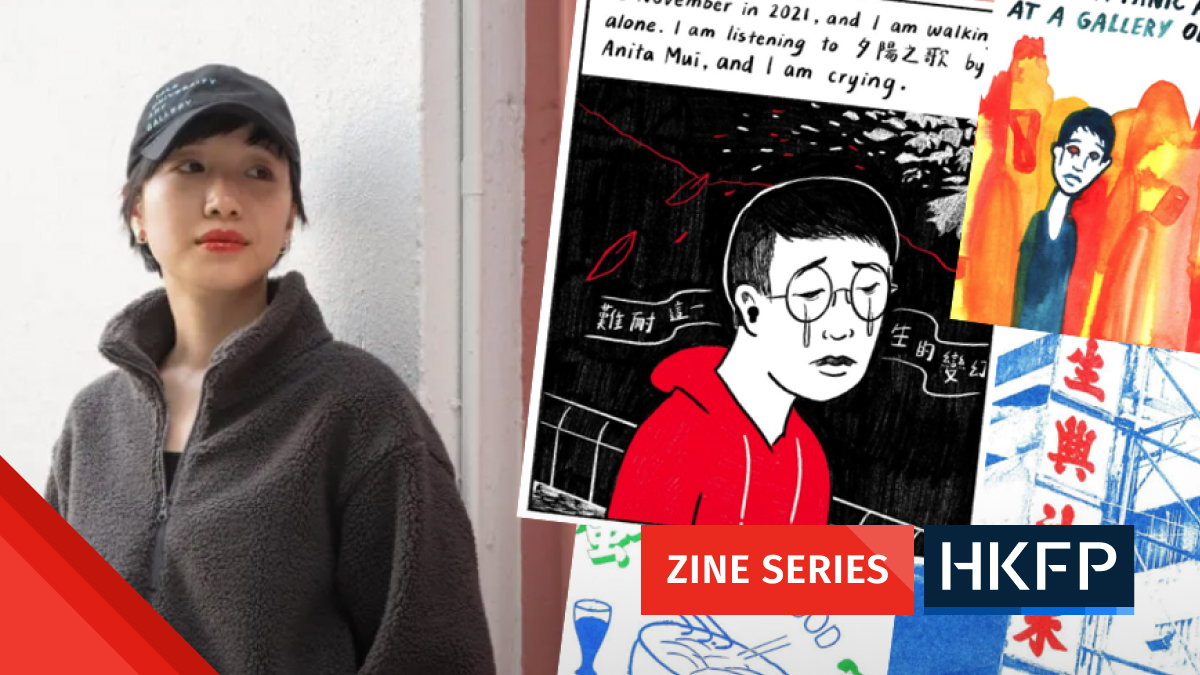Stand-up comedian Jordan Leung is serious about being funny.
The up-and-coming artist, who returned to Hong Kong from the US in 2020, has been learning Cantonese slang and catchphrases to tune in with the local audience. He enjoys pointing out local nuances and keeps a notebook in his pocket to help him develop ideas and structure them for a performance.
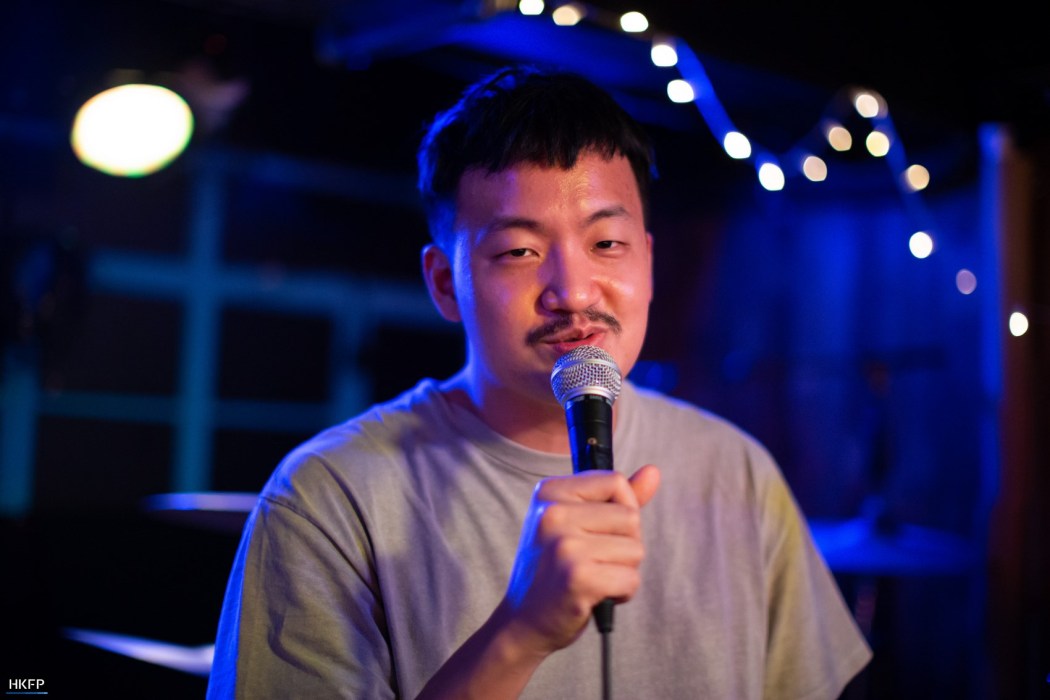
While stand-up comedy in Hong Kong is synonymous with Dayo Wong, whose sold-out stadium shows often revolved around political and social issues, Leung hopes locals can embrace and support other forms of the art.
Standing next to a mic stand and a bar stool on a small stage, 28-year-old Leung made little eye contact as he told jokes in front of a crowd of two dozen or so people on a Saturday night.
Unlike more animated performers, the Hong Kong American stood out with his monotone storytelling. From suggesting why the tale of Santa Claus would not work in Hong Kong due to the lack of chimneys, to relating how his singer-songwriter girlfriend got mad because she was not among the top artists in his Spotify year-end roundup, the audience guffawed and clapped at Leung’s seemingly effortless humour.
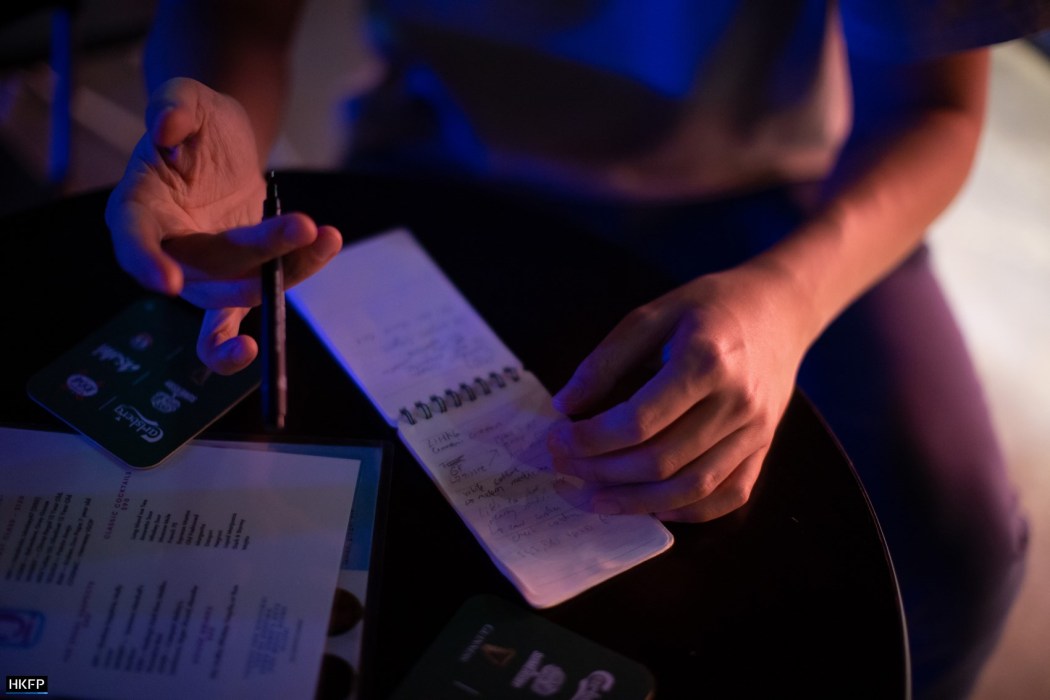
The comedian told HKFP it used to take him a full day to prepare for a show, but he can now come up with jokes just five minutes before going on stage.
Leung’s bid to make a name for himself in Hong Kong’s comedy scene began in March 2020, when he decided to move back from the US which was hit hard by the Covid-19 pandemic.
He only planned on staying for a few months, but his ambitious plan to tour Asia was stalled as Hong Kong and neighbouring countries and regions struggled to curb the spread of the virus.
Leung, who was born and raised in Hong Kong, had relocated to Palo Alto near San Francisco at the age of 15. It took him some time to learn Cantonese slang and catchphrases to connect with the local culture again. It was also challenging to adapt to the Hong Kong crowds, who were relatively new to watching stand-up comedy in a coffee house or a bar.
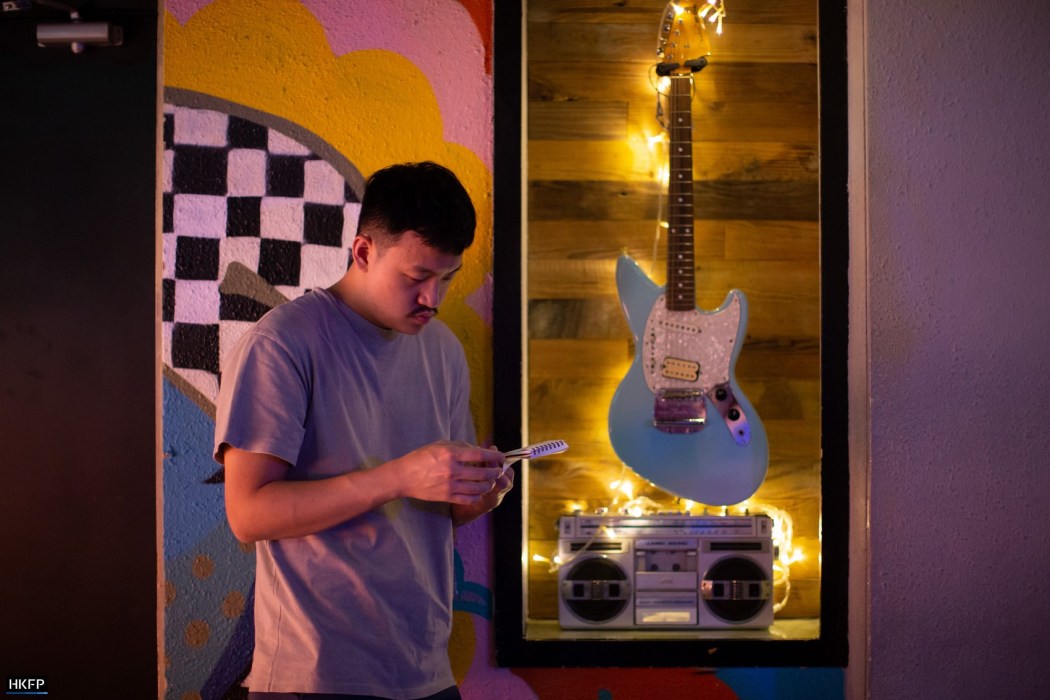
“In Hong Kong, there is an English audience and a Cantonese audience. Some are not used to the format and some are a bit more uptight… they also compare [the performance] to Dayo Wong’s style, which are two different things,” he said.
He contrasted his Hong Kong appearances with his experience of testing jokes in open mic events in New York, where he spent five years studying and honing the art of comedy.
Comedy God
As one of the pioneers of stand-up comedy in the city, Dayo Wong was nicknamed “Tze-wah God” – based on his Chinese name – for his blunt and catchy punchlines that many thought hit the nail on the head about different social issues. Wong also did not hold back from commenting on politics, such Hong Kong’s relationship with Beijing.
In 2018, he announced his retirement from stand-up. Fans snapped up tickets for 26 sessions of the farewell show at lightning speed.
While Leung said he has a lot of respect for the local stand-up comedy icon, he does not find Wong’s performance style relatable. His favourite stand-up stars are mostly based in the US, including Chinese-American actress Ali Wong who “showed what is possible for Asians in comedy.”
“I think early on I had some hesitations on telling certain jokes, because I thought my parents wouldn’t like [it] if I said this. But Ali Wong gave me the confidence to do it.”
Another comedian Leung admires is the former Canadian actor and writer Norm Macdonald, who died in September. The Hongkonger described him as a comedic genius who shared a similar “dry and deadpan style” to his own on stage.
“[He] gave me more confidence in doing comedy my way – since a lot of early advice I got was people telling me I needed more energy on stage.”
To establish his presence Leung seized every opportunity to perform, including at an elderly home. The performance was “one of the worst,” however, because his jokes about dating apps fell flat with the elders. Some even fell asleep.
But these shows were crucial in helping Leung increase his exposure and prominence in the community. Eventually he was able to pull off two headline shows, one of them bilingual, and tickets were sold out within two days.
“[The shows] were sold out so fast that I thought there was a bug,” he said.
Passion for comedy
Contrary to people’s impression of stand-up comedians as high-spirited extroverts, Leung has since childhood been quite shy and slow to warm up in front of strangers.
He loved to watch comedy shows on television and his favourite was the Super Trio series, a game show with Hong Kong celebrities as contestants. He would also try to wake up as early as 6 a.m. to watch American sitcoms The Simpsons and Seinfeld.
“I thought [the Super Trio series] was the best TV there was,” Leung recalled.
Following his move to the US, the Hongkonger began to embrace his unique sense of humour. Leung said he was unable to make any new friends in the first year because most of his schoolmates were very academically-driven. But he found a way to make his presence known.
“I did something stupid and shaved my eyebrows off for a bit. Afterwards, everyone at school knew me and I made more friends later.”
Getting serious about being funny had always been one of Leung’s life goals. When he set his mind on enrolling in a class in New York while studying statistics in graduate school, his mother had her doubts. She wanted him to “do something more practical” and not to get any ideas about making a career out of comedy.
“There were a lot of things that I started and ended up quitting within a year or two. After the two, three year mark, I realised [comedy] was something I haven’t given up on: that’s why I really knew I wanted to do it.”
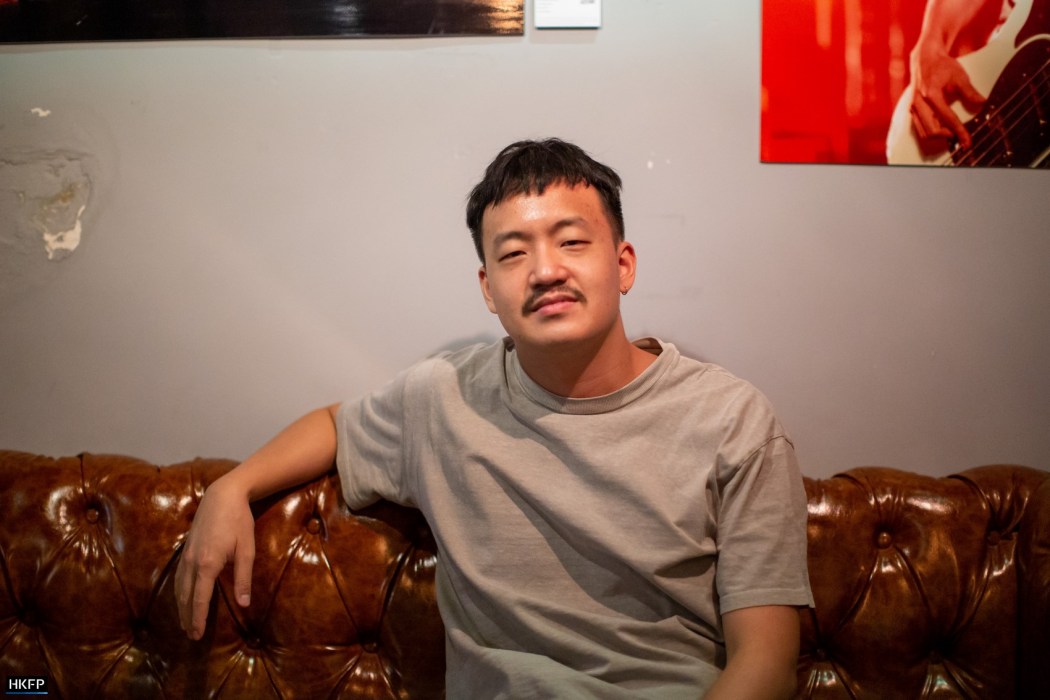
While Leung had hoped he could make a living from comedy, he struggled to turn his gigs into a full-time job in Hong Kong. He said local comedians typically earn around a couple of hundred dollars per show, while private gigs such as corporate shows range from HK$5,000 to HK$10,000.
Leung said there were more shows in the US, which allows less famous comedians to support themselves financially, and he had “more time to think about the art.” The comedy industry in Hong Kong, on the other hand, “has a strong commercial aspect” and comedians often build up their brand by acting as “key opinion leaders” on social media.
“In Hong Kong, you could do every single comedy show and that probably might barely cover your rent,” said Leung, who currently works in the social media sector and decided it was better for him to “do shows for fun” at weekends.
Hong Kong memes
Under the alias 69ranch, Leung frequently creates and shares memes on Instagram about the city’s social phenomena and pop culture. One of his most viewed videos – with close to 4,900 likes – was Leung poking fun at how an American-born Chinese entrepreneur in Hong Kong starts a business, including sourcing products from Chinese shopping platform Taobao and having his mother as one of the investors.
The comedian admitted that he often shies away from politics, saying it is a “new part about Hong Kong” that he is still trying to navigate. But he still produced memes about some controversial policies, including the LeaveHomeSafe Covid-19 tracing app which sparked concerns over personal data privacy.
“I try not to impart a natural opinion or stance,” Leung said. “I think [the memes are] important as a documentation of at the time how people felt about certain things. I don’t take it too personally.”
While most of his posts received more than 2,000 likes, Leung was forced to archive one about wild pigs, which made headlines for weeks last month after the government handed down a catch-and-kill order for boars in urban areas.
Leung joked about people who slammed the culling but found eating char siu – a Cantonese style of barbecued pork – acceptable. He faced a major backlash, with some calling him a moron with no talent who should not do comedy.
Looking back on the controversy, Leung agreed the joke was “a bit insensitive” and friends advised him it was too soon to make jokes. But he said he wanted to make a point about how some people may “move on very fast and eat pork the next day.”
“So in that sense, it had to be posted ‘soon’,” he said.
Although Leung has avoided commenting on politics, he has made quite a number of posts about pro-establishment lawmaker Regina Ip. Asked why he seems intrigued by the legislator who previously led the city’s Security Bureau, Leung said Ip was one of the few politicians who could “offer some comic relief.”
“A lot of people don’t like [Chief Executive] Carrie Lam… Regina Ip is kind of cute and wholesome in a way,” Leung said, giggling. “Many politicians are so hated… the stuff [Ip] posts is very unintentionally funny.”
Burnout
Many thought the success of Leung’s headline shows in April and August meant he would perform stand-up more regularly. The comedian, however, decided to take a break for a few months until November.
“I needed to take a step back and learn to love [comedy] again,” he said. “I had my weekends back… it was nice just to be with my friends and family, and that’s the source for inspiration because I’m living life as a normal person again.”
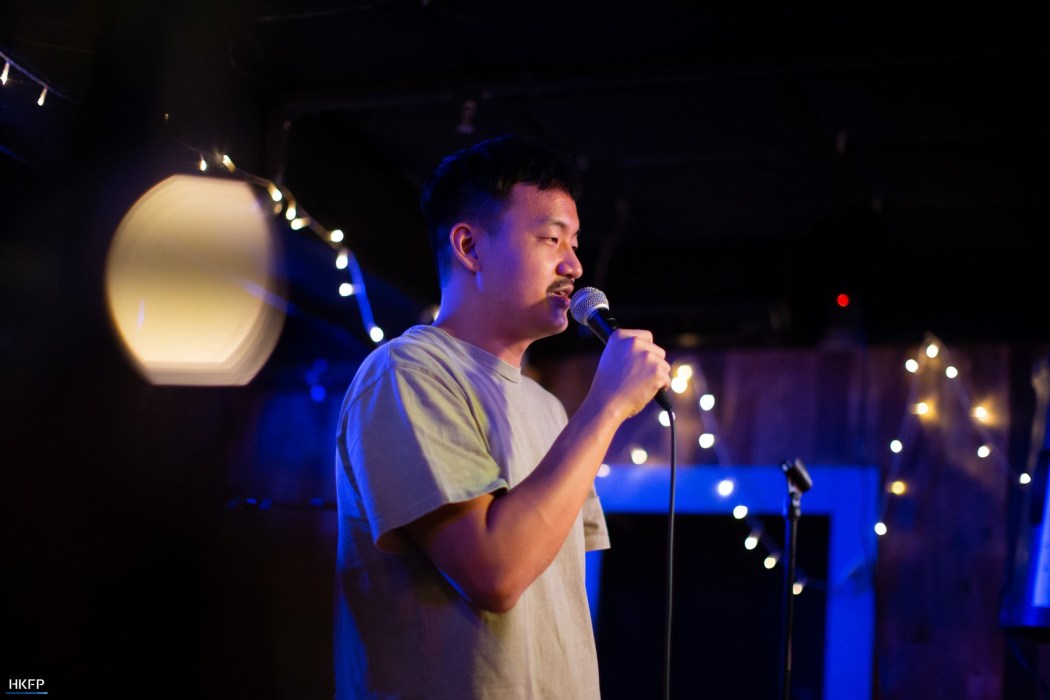
Upon returning to the local stand-up scene, Leung said he has spotted many new faces – both local Chinese and foreigners – which would help the community grow.
Asked about future plans, Leung said he may hold bigger shows in the coming year, while he awaits the opportunity to test his humour in the rest of Asia, if the pandemic situation allows.
“I think eventually I do want to go back to the US, especially New York, because that is where I started. I want to see how I measure up if I go back.”
Support HKFP | Policies & Ethics | Error/typo? | Contact Us | Newsletter | Transparency & Annual Report | Apps
Help safeguard press freedom & keep HKFP free for all readers by supporting our team

LATEST FROM HKFP
HKFP has an impartial stance, transparent funding, and balanced coverage guided by an Ethics Code and Corrections Policy.
Support press freedom & help us surpass 1,000 monthly Patrons: 100% independent, governed by an ethics code & not-for-profit.




